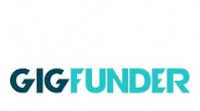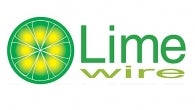Here's a repost from way back when I started this blog about 3 years ago. It's still just as relevant today.
Staying in touch with your fans is probably about the most important thing an artist can do these days, but the way it's done is equally as important. In an excerpt from the
Music 3.0 Internet Music Guidebook, here are 8 principles of fan communication.
1 - Talk to your fans, not at them. Don’t try to sell them, but keep them informed. Anything that reads like ad copy might be counterproductive. Always treat them with respect and never talk down to them.
2 - Engage in communication. Communication is a two-way street. Fans want to know that they’re being listened to. You don’t have to answer every email, but you have to acknowledge that you heard it. The more questions you ask, polls you supply and advice you seek, the more the fan feels connected to you.
3 - Keep your promises. If you say you’re going to do something, do it in a timely fashion. Don’t let the fans wait. If you promise you’re going to email a link and post a song, sooner is always better.
4 - Stay engaged. Even if you’re only sending something simple like a link, take the time to engage the fan. Tell her about upcoming gigs, events or releases. Take a poll. Ask for advice. This is a great opportunity for communication, so take advantage of it.
5 - Utilize pre-orders. If you have a a release coming soon, take pre-orders as soon as you announce it, even it’s free. It’s best to get people to act while the interest is high, plus it gives the fan something to look forward to. To motivate the fan for a pre-order, it sometimes helps to include exclusive content or merchandise.
6 - Appearance means a lot. Style counts when talking to fans. Make sure everything looks good and is readable. Spelling or grammar mistakes reflect badly on you. Try to keep it simple but stylish, but it you or your team don’t have the design chops to make it look good, it’s better to just keep it simple and readable.
7 - Cater to uber fans. All of the members of your tribe are passionate, but some are more passionate than others. Fans have different needs and wants and it’s to everyone’s benefit if you can cater to them all. Try to always include a premium or deluxe tier for every offering such as a free T-shirt or backstage pass as a reward for posting, a free ticket to an upcoming show, signed artwork, extra songs, anything to satiate the uber fan’s interest.
8 - Give them a choice. Give fans numerous ways to opt-in since not everyone wants to receive their information, or the type of information, the same way. Ask if they would rather receive info by email, SMS or even snail mail. Ask if they’d like to receive info on upcoming shows, song releases, video content, or contests. And ask how often they’d like be contacted.
Follow these 8 principles and your communication with your fans will remain both smooth and profitable.
To read more from the
Music 3.0 Internet Music Guidebook or my other books,
go to my website.
-----------------------------------
You should follow me on Twitter for daily news and updates on production and the music business.





